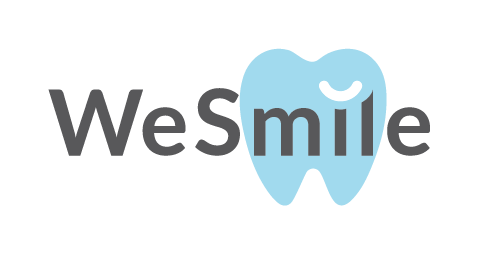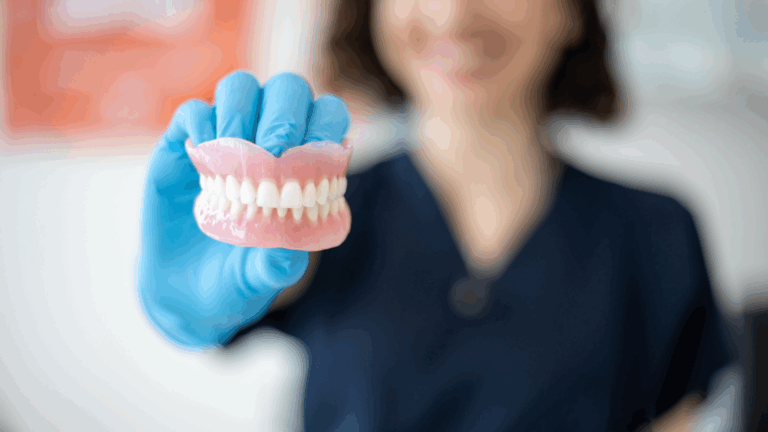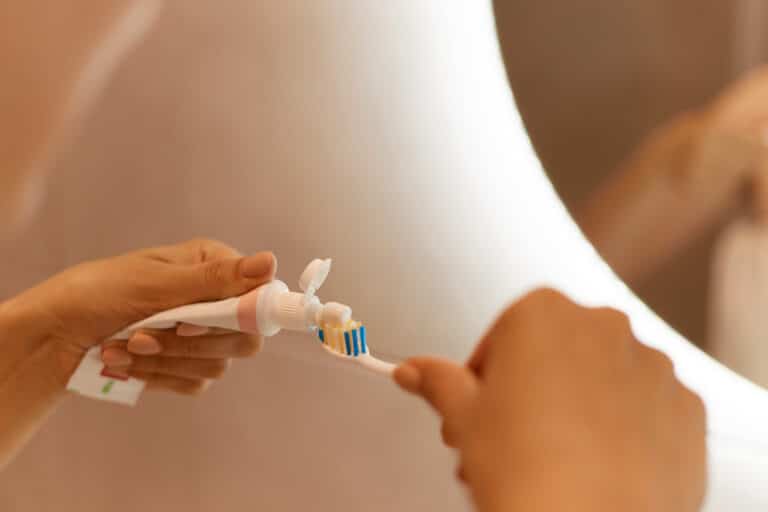As we age, it’s natural for our bodies to undergo changes, and our oral health is no exception. For the elderly, maintaining good oral hygiene is not just about aesthetics or having perfect teeth—it’s about ensuring comfort, functionality, and health. That’s why regular dental check-ups are essential. At WeSmile Dental Care, we understand the importance of providing compassionate and accessible care tailored to the unique needs of elderly patients.
In this comprehensive guide, we’ll take you through step-by-step the dental check-up process for the elderly. Whether you’re an elderly individual yourself, caregiver or kin looking out for a loved one, our aim is to provide you with the information and reassurance you need to make the dental care journey as smooth and comfortable as possible.
It’s not just teeth: Why dental check-ups matter for the elderly
Before we dive into the details of what to expect during a dental visit, let’s first understand why regular check-ups are crucial for the elderly:

Maintaining oral health
As we age, our mouths undergo changes that can increase the risk of oral health issues such as gum disease, tooth decay, and dry mouth. Regular dental check-ups help identify these problems early and prevent them from escalating into more serious conditions.
More information on common age-related dental problems here.
Ensuring comfort and functionality
Poor oral health can lead to discomfort while eating, speaking, or even smiling. By addressing issues promptly through dental check-ups, elderly individuals can maintain their ability to enjoy life to the fullest.
Promoting overall well-being
Oral health is closely linked to overall health, with research suggesting connections between gum disease and conditions such as heart disease, diabetes, and respiratory infections. By prioritising dental check-ups, elderly patients can contribute to their overall health and quality of life.
Reassuring our elderly patients and their families
At WeSmile Dental Care, we understand that visiting the dentist can be daunting, especially for elderly patients. However, we’re all for ensuring that every visit is as pleasant and stress-free as possible. Here are some ways we reassure our patients and their families:
Experienced professionals
Our team of dentists has extensive experience in geriatric dentistry. They are trained to handle the unique challenges that come with treating elderly patients, ensuring that they receive the best care possible. On top of speaking multiple languages to foster trust and communication with the elderly, our geriatric dentist strives to minimise wait time for the elderly while going at their pace of comfort.
Personalised care
We take the time to understand each patient’s specific needs and concerns. This personalised approach helps in building trust and ensuring that our patients feel comfortable and valued.
Comprehensive services
Whether it’s a routine dental check-up, teeth cleaning, or more advanced procedures like dental implants and prosthetics, we offer a full range of services to meet the diverse needs of our elderly patients.
Support for caregivers
We recognise the important role that caregivers play in the health and well-being of elderly patients. We provide them with the necessary information and support to help them care for their loved ones’ dental health.
Dental Check-Up — Step-by-Step
Now that you understand the importance of dental check-ups for the elderly and our approach to geriatric dental care, let’s walk through what to expect during a typical visit:
Step 1: Preparing for the visit
Before the appointment, it’s helpful to gather any relevant medical information, including a list of medications, allergies, and past dental history. Many elderly patients have chronic health conditions that can affect dental care, such as diabetes, heart disease, or arthritis. This information will help our team provide the best possible care tailored to the individual needs of the patient.
Step 2: Initial consultation
The visit begins with an initial consultation, where the dentist will discuss any concerns or issues the patient may have. This is also an opportunity for the dentist to review the patient’s medical history and assess their overall oral health to determine how to carry out the dental examination.
Step 3: Dental examination
Next, the dentist will perform a comprehensive dental examination, which may include:
- X-rays: These help identify any hidden, underlying issues such as cavities, bone loss, or impacted teeth.
- Gum health assessment: The dentist will check for signs of gum disease, such as redness, recession, swelling, or bleeding.
- Teeth inspection: Each tooth will be examined for signs of decay, damage, or other abnormalities. The dentist will also check the contact between teeth and for damaged filling.
- Soft tissue examination: The dentist will also inspect the tongue, cheeks, and throat for any signs of oral cancer or other conditions.
Step 4: Treatment planning
 Based on the findings of the examination, the dentist will develop a personalised treatment plan tailored to the patient’s needs and preferences. This may include simple procedures such as teeth cleaning, scaling and polishing, to more complex procedures such as dental prosthetics and periodontal surgery. The dentist will assess the treatments and what is suitable for the elderly before proceeding.
Based on the findings of the examination, the dentist will develop a personalised treatment plan tailored to the patient’s needs and preferences. This may include simple procedures such as teeth cleaning, scaling and polishing, to more complex procedures such as dental prosthetics and periodontal surgery. The dentist will assess the treatments and what is suitable for the elderly before proceeding.
Step 5: Referral to specialists
In some cases where the dental issue is complicated or may have other side effects or compounding conditions, the dentist may refer the elderly patient to a specialist for further evaluation before carrying out any treatment.
Step 6: Follow-up care
Finally, the dentist will schedule any necessary follow-up appointments to monitor the patient’s progress and ensure that their oral health is on track. Regular check-ups are essential for maintaining oral health and addressing any new issues that may arise. While patients are usually advised to see the dentist every six months, this duration may vary depending on the patient’s condition and treatment plan.
What is the cost of geriatric dental care in Singapore?

The cost of dental treatment depends on what treatment the elderly patient requires after the consultation. While there is no additional cost to request for a geriatric dentist at WeSmile dental clinics, dental treatments can be expensive when several procedures are required, especially at the same time. Here’s a list of subsidies available elderly patients can tap on:
MediSave
Medisave is a national saving programme that helps Singaporeans set aside money for their personal or approved dependents’ healthcare needs. Medisave can be used to pay selected dental surgical procedures, such as wisdom tooth extraction, dental implant insertions, bone graft, gum surgery, or any surgical removal of retained roots of fractured teeth.
At WeSmile dental clinics, Medisave can be used to cover a portion of surgical expenses as we are accredited by Ministry of Health and Central Provident Fund Board (CPF).
Contact us for a more comprehensive understanding of which procedures you and your loved one can claim via Medisave.
Community Health Assist Scheme (CHAS)
CHAS is government-funded scheme that provides varied subsidies to Singaporeans who require assistance paying for their healthcare needs.
CHAS Blue cardholders are eligible for subsidies on all listed dental services, from consultations fees to procedures such as root canal treatments and dentures.
CHAS Orange cardholders are eligible for subsidies on dental service subsidies, with the exception of consultation, extraction, filling, polishing, scaling, topical fluoride and X-ray dental services.
Pioneer Generation, Merdeka Generation, and Majulah Packages
These packages are government initiatives with the aim of supporting Singaporean Senior Citizens and those approaching the years of retirement, by making healthcare affordable.
Similar to the CHAS card, subsidies on dental care consultations and procedures are available to Pioneer Generation and Merdeka Generation cardholders. The subsidies available vary across the different generations the citizen belongs to, and in some instances, the amount of income they are earning.
- Pioneer generation: Any citizen born in 1949 or earlier
- Merdeka Generation: Any citizen born from 1st January 1950 to 31st December 1959, and anyone who became a Singaporean Citizen on or before 31st December 1996.
- Majulah: Singaporean Citizens born in 1960 to 1973
*For a compilation of subsidy terms and subsidy amounts available for CHAS Blue and Orange, Pioneer, and Merdeka Generation cardholders, click here.
Insurance
Any coverage for geriatric dental care services is dependent on the patient’s available dental insurance plan. It’s advisable to check directly with the patient’s insurance provider on the coverage details.
WeSmile Dental Care is a direct billing partner of AIA and IHP; this enables us to submit insurance claims straight to the insurance provider on behalf of the patient. This makes dental care more convenient as patients need not worry about paying upfront of filing a claim for reimbursement.
To learn more about out direct billing partnerships click here
All in all, regular dental check-ups are essential for maintaining the oral health and overall well-being of the elderly. By understanding what to expect during a dental visit and how our clinic prioritises the comfort and safety of our elderly patients, we hope to minimise any dental anxieties that your loved one might experience.
Whether it’s to give your loved ones boost of confidence by restoring their smile, or to reduce the risk of contracting more health conditions that could impact their quality of life, schedule an appointment for your loved one with us to learn about their unique dental requirements.



